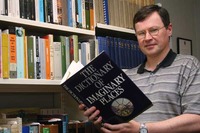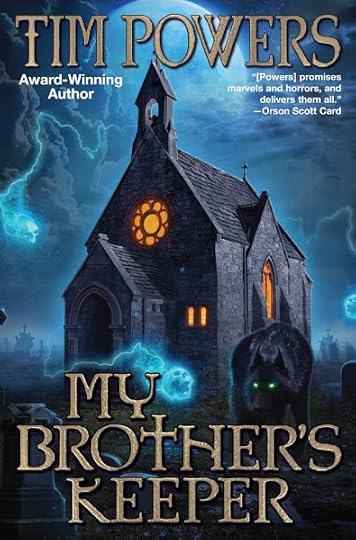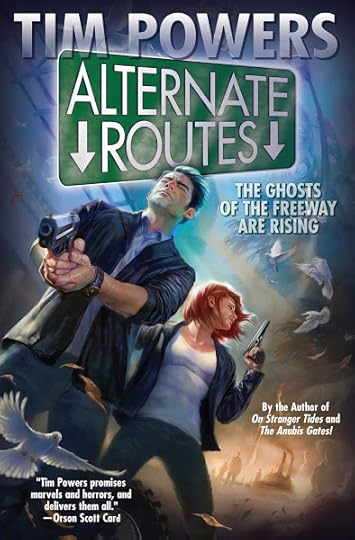Jack Ross
Goodreads Author
Born
in Auckland, New Zealand
Website
Genre
Member Since
December 2013

|
Poetry New Zealand Yearbook 2019
by
—
published
2019
|
|

|
Poetry New Zealand Yearbook 2018
|
|

|
Recviem
|
|

|
Contemporary New Zealand Poets in Performance
by
—
published
2007
|
|

|
Classic New Zealand Poets in Performance
by
—
published
2006
|
|

|
Poetry New Zealand Yearbook 2017
|
|

|
New New Zealand Poets in Performance
by
—
published
2008
|
|

|
Ghost Stories
|
|

|
101 Things Home Owners Should Know: Expert Advice for Buying, Maintaining, and Improving Your Home
|
|

|
To Terezín (Social and Cultural Studies Number 8)
—
published
2007
|
|
Jack’s Recent Updates
|
"This succeeds as a sober but readable history of the phenomenon of witchcraft hysteria. Williams traces the development of the Christian ideas of the phenomenon as a reaction against paganism, folk medicine, and proto-scientific thinking while adopti"
Read more of this review »
|
|
|
“Did they all live happily ever after?
They did not. No one ever does, in spite of what the stories may say. They had their good days, as you do, and they had their bad days, and you know about those. They had their victories, as you do, and they had their defeats, and you know about those, too. There were times when they felt ashamed of themselves, knowing that they had not done their best, and there were times when they knew they had stood where their God had meant them to stand. All I'm trying to say is that they lived as well as they could, each and every one of them; some lived longer than others, but all lived well, and bravely, and I love them all, and am not ashamed of my love.” ...more Stephen King |
|
|
"Malefrena (1979) by Ursula LeGuin took me almost 40 years to complete. I began reading it as a school kid when I saw it in the fantasy section, because LeGuin was a fantasy author. The book did not belong there. I read it expecting fantasy to happen "
Read more of this review »
|
|
|
Jack Ross
has read
|
|
|
Jack Ross
rated a book it was amazing
|
|
|
"Marlene Dietrich: A Life by Maria Riva is a 2017 Pegasus Books publication.
Recently I read ‘Marlene’ by C.W. Gortner, which falls into the ‘biographical novel’ category. It was well done, for the most part, but I couldn't help but wonder, what parts" Read more of this review » |
|
|
“A miracle is a violation of the laws of nature; and because firm and unalterable experience has established these laws, the case against a miracle is—just because it is a miracle—as complete as any argument from experience can possibly be imagined to be. Why is it more than merely probable that all men must die, that lead cannot when not supported remain suspended in the air, that fire consumes wood and is extinguished by water, unless it is that these events are found agreeable to the laws of nature, and for things to go differently there would have to be a violation of those laws, or in other words a miracle? Nothing is counted as a
miracle if it ever happens in the common course of nature. When a man who seems to be in good health suddenly dies, this isn't a miracle; because such a kind of death, though more unusual than any other, has yet often been observed to happen. But a dead man’s coming to life would be a miracle, because that has never been observed in any age or country. So ...more David Hume |
|
|
Jack Ross
rated a book it was amazing
|
|
|
Jack Ross
rated a book it was amazing
|
|
|
Jack Ross
rated a book it was amazing
|
|
“The book, and the CDs, are taonga. The result of a mission by poets Jan Kemp and Jack Ross, they reproduce the poetic voices of our past. …
But what is the bigger story of this collection? It is a treasure of voice and poem. I am hoping it is the beginning of a longer series. Every school should have one. There is much to ponder on, to celebrate here. And people searching for poems for significant occasions could do well to buy this book. It is of our people.
– Peter Wells, New Zealand Herald”
― Classic New Zealand Poets in Performance
But what is the bigger story of this collection? It is a treasure of voice and poem. I am hoping it is the beginning of a longer series. Every school should have one. There is much to ponder on, to celebrate here. And people searching for poems for significant occasions could do well to buy this book. It is of our people.
– Peter Wells, New Zealand Herald”
― Classic New Zealand Poets in Performance
“Ah, Sir, a novel is a mirror carried along a high road. At one moment it reflects to your vision the azure skies, at another the mire of the puddles at your feet. And the man who carries this mirror in his pack will be accused by you of being immoral! His mirror shews the mire, and you blame the mirror! Rather blame that high road upon which the puddle lies, still more the inspector of roads who allows the water to gather and the puddle to form.”
― The Red and the Black
― The Red and the Black
“The book, and the CDs, are taonga. The result of a mission by poets Jan Kemp and Jack Ross, they reproduce the poetic voices of our past. …
But what is the bigger story of this collection? It is a treasure of voice and poem. I am hoping it is the beginning of a longer series. Every school should have one. There is much to ponder on, to celebrate here. And people searching for poems for significant occasions could do well to buy this book. It is of our people.
– Peter Wells, New Zealand Herald”
― Classic New Zealand Poets in Performance
But what is the bigger story of this collection? It is a treasure of voice and poem. I am hoping it is the beginning of a longer series. Every school should have one. There is much to ponder on, to celebrate here. And people searching for poems for significant occasions could do well to buy this book. It is of our people.
– Peter Wells, New Zealand Herald”
― Classic New Zealand Poets in Performance
“fast-thinkers ... think in cliches, in the "received ideas" that Flaubert talks about--banal, conventional, common ideas that are received generally. By the time they reach you, these ideas have already been received by everybody else, so reception is never a problem.”
― On Television
― On Television
“My theme is memory, that winged host that soared about me one grey morning of war-time. These memories, which are my life—for we possess nothing certainly except the past—were always with me. Like the pigeons of St. Mark’s, they were everywhere, under my feet, singly, in pairs, in little honey-voiced congregations, nodding, strutting, winking, rolling the tender feathers of their necks, perching sometimes, if I stood still, on my shoulder or pecking a broken biscuit from between my lips; until, suddenly, the noon gun boomed and in a moment, with a flutter and sweep of wings, the pavement was bare and the whole sky above dark with a tumult of fowl. Thus it was that morning.”
― Brideshead Revisited
― Brideshead Revisited
“A miracle is a violation of the laws of nature; and because firm and unalterable experience has established these laws, the case against a miracle is—just because it is a miracle—as complete as any argument from experience can possibly be imagined to be. Why is it more than merely probable that all men must die, that lead cannot when not supported remain suspended in the air, that fire consumes wood and is extinguished by water, unless it is that these events are found agreeable to the laws of nature, and for things to go differently there would have to be a violation of those laws, or in other words a miracle? Nothing is counted as a
miracle if it ever happens in the common course of nature. When a man who seems to be in good health suddenly dies, this isn't a miracle; because such a kind of death, though more unusual than any other, has yet often been observed
to happen. But a dead man’s coming to life would be a miracle, because that has never been observed in any age or country. So there must be a uniform experience against every miraculous event, because otherwise the event wouldn't count as a ‘miracle’. And as a uniform experience amounts to a proof, we have here a direct and full proof against the existence of any miracle, just because it’s a miracle; and
such a proof can’t be destroyed or the miracle made credible except by an opposite proof that is even stronger.
This clearly leads us to a general maxim that deserves of
our attention:
No testimony is sufficient to establish a miracle unless it is of such a kind that its falsehood would be more miraculous than the fact that it tries to establish. And even in that case there is a mutual destruction of
arguments, and the stronger one only gives us an assurance suitable to the force that remains to it after the force needed to cancel the other has been
subtracted.”
― An Enquiry Concerning Human Understanding
miracle if it ever happens in the common course of nature. When a man who seems to be in good health suddenly dies, this isn't a miracle; because such a kind of death, though more unusual than any other, has yet often been observed
to happen. But a dead man’s coming to life would be a miracle, because that has never been observed in any age or country. So there must be a uniform experience against every miraculous event, because otherwise the event wouldn't count as a ‘miracle’. And as a uniform experience amounts to a proof, we have here a direct and full proof against the existence of any miracle, just because it’s a miracle; and
such a proof can’t be destroyed or the miracle made credible except by an opposite proof that is even stronger.
This clearly leads us to a general maxim that deserves of
our attention:
No testimony is sufficient to establish a miracle unless it is of such a kind that its falsehood would be more miraculous than the fact that it tries to establish. And even in that case there is a mutual destruction of
arguments, and the stronger one only gives us an assurance suitable to the force that remains to it after the force needed to cancel the other has been
subtracted.”
― An Enquiry Concerning Human Understanding




























